Black Lies Matter
How the Democrat Party turned Black America into a permanent underclass, angry at White people, addicted to government, and blind to the exit.
You’ve been lied to. Not once. Not accidentally. Constantly. On purpose.
Lies about racism. Lies about the police. Lies about your own history.
Not to help you, but to control you.
The result? A generation of young Black Americans trained to hate the country they live in, envy the people they claim to despise, and destroy the very values that once made their communities strong.
You’ve been programmed.
Not to think, but to feel.
Not to lead, but to lash out.
Not to succeed, but to stay angry, addicted, and dependent.
And the truth they’ll never admit?
You don’t hate Whiteness. You chase it. Obsess over it. Define yourself by it. Just like a crackhead chasing a pipe.
This isn’t just cultural collapse. It’s political engineering.
Because the more broken you are, the more useful you are.
To them.
Let’s analyze the lies, who benefits from them, and what it will take to finally walk away from the mental plantation.
The Master’s New Chains
The most dangerous form of slavery is not physical. It is psychological. When a man’s body is in chains, he knows he is not free. But when his mind is held captive—when he is trained to view freedom as a trap and dependency as salvation—he not only obeys, he defends his own submission.
In modern America, the legacy of slavery has been replaced with something more subtle, yet more destructive. Not whips and plantations, but narratives and policies. Not overseers, but politicians. And the chains are now forged with words like “equity,” “systemic racism,” and “social justice.”
These are not concepts designed to uplift. They are intended to restrict.
They do not encourage achievement. They explain away failure.
They do not demand excellence. They excuse mediocrity.
And all of it—every slogan, every grievance, every excuse—is carefully constructed to keep Black Americans voting for the very people who benefit from their stagnation.
The tragedy is not that these lies are believed. The tragedy is that they are repeated with such confidence and so little scrutiny.
You are told:
The country is fundamentally against you.
The police are a mortal threat.
The system was designed to see you fail.
Success is out of reach, and struggle is permanent.
These are not just falsehoods. They are political tools.
They are not meant to liberate. They are meant to manipulate.
In a genuinely free society, men and women are judged by their choices, not their grievances. But grievance is profitable—for some.
It feeds careers in academia, media, and politics. It produces votes, book deals, nonprofit grants, and panel discussions. It creates an entire industry of outrage, while the communities in question remain broken, undereducated, and over-policed—not because America hates them, but because they have been taught to hate themselves and blame someone else.
This is not accidental. It is intentional.
Who benefits?
The Democratic Party. Not because it helps Black Americans, but because it convinces them that no one else will.
Lie #1: America Hates You
There is a carefully cultivated belief that America harbors an unrelenting hatred toward Black people. It is not supported by facts, but by repetition. In an age where truth is optional and feelings are paramount, this belief has been repeated so often that questioning it is seen as betrayal.
But history—and reality—tell a different story.
Within a single generation after the end of slavery, Black Americans had achieved levels of literacy and entrepreneurship that defied every expectation. In cities like Durham and Charleston, Black-owned businesses flourished. In Washington, D.C., the now-forgotten Dunbar High School produced Black scholars who outperformed their White peers on standardized exams. These were not isolated incidents. They were patterns of progress—born of effort, discipline, and community values.
No civil rights marches were required. No hashtags. No billion-dollar NGOs.
Just families, churches, and a culture that valued self-respect more than self-pity.
So what changed?
Not the presence of racism. Racism, like stupidity and cruelty, has always existed and always will. What changed was the narrative: the strategic transformation of hardship into helplessness.
Today, young Black Americans are taught that America is not just flawed, but malicious. That failure is not circumstantial or personal—it is structural. That no matter how hard you work, the system will hold you down.
This is not only false—it is fatal.
Once you convince a person that effort is futile, you remove all incentive to try. Once you convince a population that merit is a lie, you replace achievement with anger. And once you convince a young man that he is hated by the society he lives in, you remove the final barrier between him and violence.
This is not social progress. It is social sabotage.
Who benefits?
The Democratic Party. Because nothing guarantees loyalty like fear, and nothing disables ambition like the belief that it’s pointless.
Lie #2: The Police Are Hunting You
It is one of the most emotionally powerful claims of our time: that police officers are hunting young Black men. This idea, often repeated and rarely examined, has become gospel in political discourse, media commentary, and classroom instruction. Yet it collapses under even the most basic scrutiny.
There are nearly 330 million people in the United States and roughly 700,000 full-time law enforcement officers. In any given year, police kill approximately 1,000 individuals, the overwhelming majority of whom are armed and actively resisting arrest. The number of unarmed Black men killed by police is not only small—it is statistically minuscule.
This is not to say those deaths are irrelevant. But the data does not support the narrative. What it does support is a deliberate political agenda.
Black males make up roughly 6 percent of the population, but commit over 50 percent of homicides in the United States. Most of these victims are other Black people. Yet those lives receive no headlines, no protests, and no federal investigations. Why? Because they do not advance a useful narrative.
It is not the loss of life that draws attention. It is the identity of the person who takes it.
A young Black man shot by another Black man is considered unfortunate. A young Black man shot by a White officer is considered evidence. It does not matter whether the officer was in the right. It does not matter whether the suspect had a weapon. It does not even matter what the law says. The facts are not the focus. The framing is.
This kind of narrative distortion is not simply dishonest—it is dangerous. It has created a generation of young Black men who see the police not as public servants, but as predators. And when individuals believe they are being hunted, they act accordingly.
They flee traffic stops. They resist arrest. They assume guilt before judgment. In many cases, they escalate situations that would have otherwise ended peacefully.
This is not policing gone wrong. This is perception gone wrong.
Who benefits?
The Democratic Party. Because a fearful, hostile population is easier to manipulate than a confident, informed one.
Lie #3: Republicans Are Racist, Democrats Are Saviors
If one were to believe the prevailing narrative, the Democratic Party has been the lifelong ally of Black Americans, while the Republican Party has been their historical enemy. That narrative is not only untrue—it is the precise inversion of reality.
The Republican Party was founded as the anti-slavery party. Abraham Lincoln, its first successful presidential candidate, issued the Emancipation Proclamation. The 13th, 14th, and 15th Amendments—abolishing slavery, granting citizenship, and securing voting rights—were passed by Republican majorities over the objections of Democrats.
Meanwhile, the Democratic Party was home to every segregationist governor, every Jim Crow law, and every lynch mob that operated with legal impunity in the South. Senator Robert Byrd, a former Exalted Cyclops of the Ku Klux Klan, served as a Democrat until he died in 2010 and was praised without irony by the party leadership.
History has not been hidden. It has been selectively forgotten.
The so-called "party switch" is often cited as the great pivot that reversed moral alignments. In reality, the overwhelming majority of segregationist Democrats never switched parties. They died as Democrats or retired from politics. The Southern realignment had less to do with race and more to do with economics, culture, and the increasing radicalism of the national Democratic platform.
Today’s Democratic Party thrives on the myth of moral superiority. It paints itself as the champion of the oppressed, the defender of justice, and the last barrier between Black America and annihilation. But its policies tell a different story.
It supports abortion policies that have eliminated millions of Black children. It opposes school choice that would allow poor families to escape failing schools. It champions welfare systems that discourage work and dissolve family structures. All while demanding absolute political loyalty in return.
If this is salvation, it bears a striking resemblance to sabotage.
Who benefits?
The Democratic Party. By rewriting its past and vilifying its competition, it ensures that history is no longer a record but a weapon.
Lie #4: Success Means Selling Out
Perhaps the most insidious of all lies is the one that tells young Black Americans that striving for excellence is a betrayal of their identity. That studying hard, speaking clearly, showing up on time, or building a family is somehow “acting white.” That the path to success is not honorable, but suspect.
It is difficult to imagine a more effective method of cultural sabotage.
No one would suggest that success is easy. But when entire communities begin to equate self-discipline with racial disloyalty, the result is not just underachievement. It is active resistance to progress. Not because progress is impossible, but because it has been framed as undesirable.
This attitude did not emerge organically. It was cultivated. In the name of empowerment, Black culture has been flooded with messages that glorify rebellion, dysfunction, and victimhood. Artists who rap about murder and misogyny are celebrated. Athletes and entertainers who promote grievance over gratitude are rewarded. And those who emphasize personal responsibility are ridiculed.
Thomas Sowell, Clarence Thomas, Walter Williams, and other brilliant minds are not just ignored. They are treated as enemies. Not because they are wrong—but because they prove that success does not require excuses.
The cost of this lie is generational. Children grow up with no vision beyond fame, sports, or criminal bravado. Fathers are absent. Schools are chaotic. And anyone who tries to offer an alternative is dismissed as a sellout.
This is not a culture of oppression. It is a culture of rejection—of the very tools that produce achievement in every other community.
Who benefits?
The Democratic Party. Because as long as Black excellence is framed as betrayal, dependency becomes the only acceptable form of loyalty.
Lie #5: You’re Helpless Without Help
It is a peculiar kind of cruelty to convince someone that they are powerless, and then offer them assistance that guarantees they remain so.
For decades, Black Americans have been told that they cannot succeed without special treatment. Not encouragement. Not opportunity. But intervention—preferential policies that assume, by design, that Black failure is inevitable without government correction.
This message is delivered through a series of euphemisms: equity, access, and reparative justice. It sounds compassionate. It feels supportive. But it reinforces the same poisonous idea—that Black people are not capable of competing without the state tilting the playing field.
The results speak for themselves.
Welfare programs that promised to lift the poor instead incentivized broken homes and joblessness. Affirmative action policies meant to open doors instead stigmatized achievement, making success appear unearned. Reparations, once a historical question, are now pitched as a moral debt owed to people who were never enslaved by people who never enslaved anyone.
This is not empowerment. It is infantilization.
The tragedy is not that some people need help. The tragedy is that the help on offer discourages independence. And worse, it comes with a price—political loyalty. When your livelihood depends on government benevolence, questioning the source of that support becomes dangerous.
A population that sees itself as helpless will never rise above the level of its patron.
Who benefits?
The Democratic Party. Because by replacing fathers with funding and pride with pity, it secures votes in exchange for dependency.
Programmed for Rage
When logic is replaced with emotion, and facts are replaced with feelings, the result is not justice—it is chaos.
Nowhere is this more visible than in the increasingly common spectacle of group violence sparked by minor incidents. A disagreement at a party. A glance at a gas station. A comment on social media. What once might have ended in a heated exchange now ends in a stabbing, a shooting, or a viral beatdown carried out by a crowd.
This is not a breakdown in behavior. It is the result of behavioral conditioning.
Young Black men are told from childhood that they are under attack. Not just metaphorically, but literally. They are taught to see police as executioners, employers as oppressors, and White people as enemies. They are taught that any slight is a threat. That every confrontation is war. That restraint is weakness.
When a person believes he is being hunted, his response will not be measured. It will be explosive. And when that belief is shared across a peer group, violence becomes not only acceptable, but expected.
This is why so many of these acts are not one-on-one. They are group affairs. A crowd sees someone trip or insult or shove a friend, and within seconds, five or ten people are stomping a stranger unconscious. There is no reflection. No proportion. No mercy. Only reaction.
In Cincinnati, a White man slapped a Black man during a dispute. In a civilized society, one might expect a proportionate response—a push, a punch, perhaps even a scuffle between two individuals. What happened instead was something else entirely.
Within seconds, a crowd of young Black men swarmed the White couple. The man was struck repeatedly. The woman was punched in the face and knocked unconscious. She lay bleeding in the street while the mob raged around her. The attack was not measured. It was not reactive. It was explosive, indiscriminate, and unthinking.
This was not justice. It was a performance. A kind of group theater of vengeance—one that had been rehearsed not in courts or churches, but in classrooms, hashtags, and activist slogans. The moment the opportunity presented itself, the rage was ready. It did not hesitate. It did not distinguish between threat and bystander, male and female. It simply erupted.
That is the product of narrative conditioning.
These were not impoverished, desperate individuals fighting for survival. These were citizens in a modern American city, acting out what they had been taught—that any slight, especially from a White person, is a legitimate trigger for retaliation. Not self-defense. Not proportionality. Retaliation.
And it is not isolated. It is predictable. Because when you fill people with rage, teach them they are victims, and give them permission to explode, they will. And then they will vote for the people who told them it was righteous.
Who benefits?
The Democratic Party. Because the more emotional and reactive a population becomes, the easier it is to steer them—with fear, with headlines, and with lies.
When the Narrative Explodes: Real-World Case Studies of Group Violence
The claim that Black Americans live in constant fear of racially motivated violence does not hold up to scrutiny. The inverse is often true — and far more common.
Here are just a few of the most brutal incidents in recent years:
The Knoxville Horror (2007)
Channon Christian and Christopher Newsom, a White couple, were kidnapped by five Black attackers. They were raped, tortured, mutilated, and murdered in one of the most savage crimes in modern U.S. history. The national media largely ignored it.
Reginald Denny (1992)
Dragged from his truck during the LA riots, this White man was beaten nearly to death on live television by a Black mob. His attackers became folk heroes in some circles.Cincinnati Beatdown (2025)
A White couple was beaten senseless in downtown Cincinnati by a crowd of Black attackers. One Black councilwoman said the victims "begged for that beatdown." The White DEI police chief downplayed the incident entirely.Ethan Liming (2022)
A 17-year-old White teen was beaten to death outside a school funded by LeBron James. The attackers—three Black men—stomped his chest and left him to die.Austin Metcalf (2025)
A 17‑year‑old White student was brutally stabbed to death at a high school track meet in Frisco, Texas. The attacker, 17‑year‑old Black student Karmelo Anthony, allegedly pulled a knife after being asked to move and later confessed, “I did it.” A judge reduced his bond from $1 million to $250,000, and he was released on house arrest without media fanfare. Meanwhile, a GiveSendGo fundraiser for his legal defense collected over $547,000, supported largely by Black donors. Despite multiple egregious offenses, the community response uplifted the perpetrator, not the victim, amid near-complete national silence.
"Honestly, even if Karmelo stabbed Austin for no reason at all, I'd still donate and support. Whites have gotten away with killing us for hundreds of years. I could care less about White lives." - Karmelo Anthony GiveSendGo Donor
These are not isolated cases. They are symptoms of a deeper cultural problem: a generation trained to hate, then told that hatred is righteous.
Who benefits?
The Democratic Party. Because the more justified the rage seems, the less likely anyone is to question its consequences.
The Secret You Can’t Admit
The most closely guarded secret in racial politics today is not hidden in data or buried in history. It is visible in plain sight, yet rarely spoken out loud.
Many of the same people who claim to hate whiteness are obsessed with it.
This obsession takes many forms. Black families move into White neighborhoods for better schools. Black celebrities adopt White fashion trends, White cosmetic standards, even White-sounding names for their children. Black youth film themselves shopping in Target, sipping Starbucks, and rapping over EDM beats, all while insisting that they are fighting systemic oppression.
This is not hatred. It is imitation disguised as resistance.
The irony is not simply that those who denounce whiteness often chase it. The deeper tragedy is that their entire sense of identity is now built around being the opposite of something they claim to despise. They do not define themselves by what they are building, achieving, or contributing. They define themselves by what they are not.
And in doing so, they become tethered to the very thing they claim to reject.
You cannot escape a thing while also obsessing over it. You cannot rise above something that you spend your life reacting to. And you certainly cannot grow into personal strength while measuring your every move against a cultural shadow you pretend not to envy.
This is not liberation. It is psychological dependence.
The truth is complicated because it requires self-reflection. It requires acknowledging that your enemy may not be the system, the cop, or the conservative. It may be the image in the mirror—a person told so often that he could not rise, that he never tried.
Who benefits?
The Democratic Party. Because the longer you define yourself in opposition to whiteness, the less time you spend building anything of your own.
Who Really Profits
The rhetoric is always urgent. The crisis is always now. Marches, hashtags, headlines. Leaders appear, slogans are repeated, donations flood in. And then—nothing changes. Except the bank accounts.
Black Americans are told that the system is stacked against them, that injustice is everywhere, and that only political action can set things right. So they mobilize. They vote. They protest. They give.
But where does the money go?
Black Lives Matter raised over $90 million in a single year. Tens of millions went to luxury homes, personal consulting fees, and untraceable expenses. Entire chapters of the organization dissolved in protest—not against racism, but against financial fraud.
The money went somewhere. It just didn’t go to the communities that needed it.
The donations processed through ActBlue ended up funding Democratic campaigns. The corporate sponsorships fed activist non-profits. The tragedy is recycled each election cycle, not solved. The rage is sustained, not soothed. Because the narrative is more profitable than the solution.
The same dynamic exists in media. Violent crime in Chicago, Baltimore, or St. Louis barely registers unless the race is politically useful. A police shooting involving a Black suspect and a White officer is worth weeks of coverage, regardless of the facts. Because it drives clicks, ratings, and outrage. The suffering is real. The storytelling is strategic.
And always—without fail—it ends in the same direction: vote blue, donate here, stay angry.
Who benefits?
The Democratic Party. The media. The activists. The non-profits. Everyone but you.
The Exit Door
The most devastating part of this entire structure is not the lie itself. It’s that the door to freedom has been open the whole time.
You were never locked in.
You were just taught to fear what was outside.
Taught that if you walked away from a grievance, you were a traitor.
Taught that if you stopped blaming, you were betraying your people.
Taught that if you took responsibility, you were doing the enemy’s work.
But that’s the real trick, isn’t it?
The very things that lift individuals—education, discipline, family, faith, ownership—were recast as signs of weakness. As selling out. As “acting white.” And so they were rejected, not because they failed, but because they worked.
You don’t need the government to fix you. You don’t need reparations, hashtags, or federal task forces. You need what every functional community has always needed: structure, responsibility, and the courage to reject the comfort of excuse.
This is not about politics. It is about dignity.
Because the truth is, if you stopped believing the lies, the Democratic Party would lose everything.
Their influence. Their power. Their narrative.
Who loses?
The Democratic Party.
Because if Black Americans ever stopped chasing whiteness and started building something of their own, the entire system would collapse overnight.
The cruelest lie of all is that this is empowerment. That rage is strength. That envy is pride. That blaming White people while imitating them is somehow liberation. But the truth is uglier: the Black community has been turned into a political prop—milked for votes, marched for headlines, and programmed to see victimhood as virtue. They’re not being uplifted. They’re being used. Used by white liberals, race hustlers, and corporate overlords who feed them lies, rob them of agency, and cash in on the chaos. Black Lies Matter isn’t about justice—it’s about control. And as long as the scam keeps paying, the suffering will never stop.
This work doesn't water anything down — and it doesn't exist without your support.
If you're tired of media narratives, race hustlers, and political gaslighting, help fuel more content like this.
→ Become a paid subscriber: https://mrchr.is/help
→ Join The Resistance Core (Founding Tier): https://mrchr.is/resist
→ Buy Me a Coffee (one-time support): https://mrchr.is/give
Your support makes truth louder than lies.


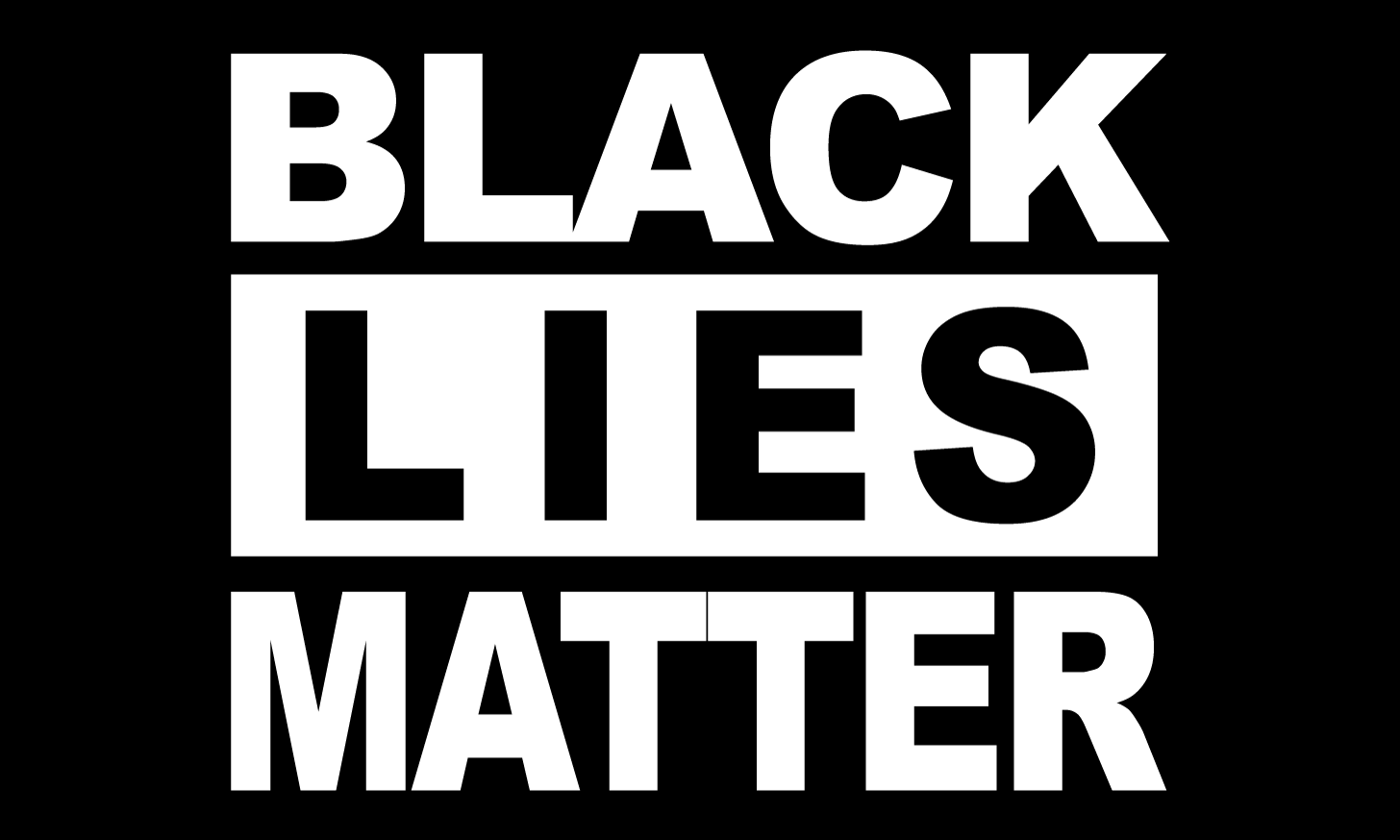
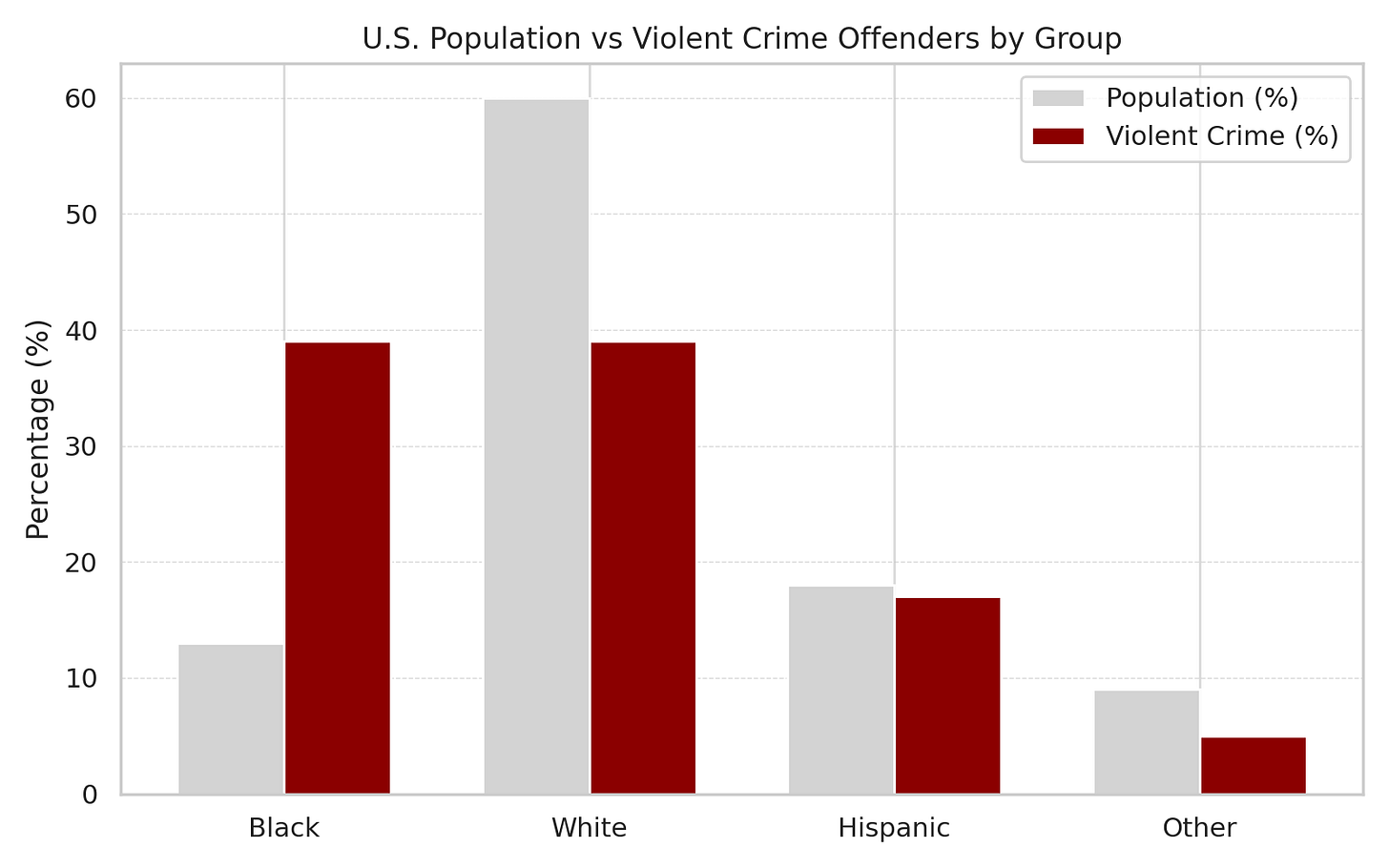
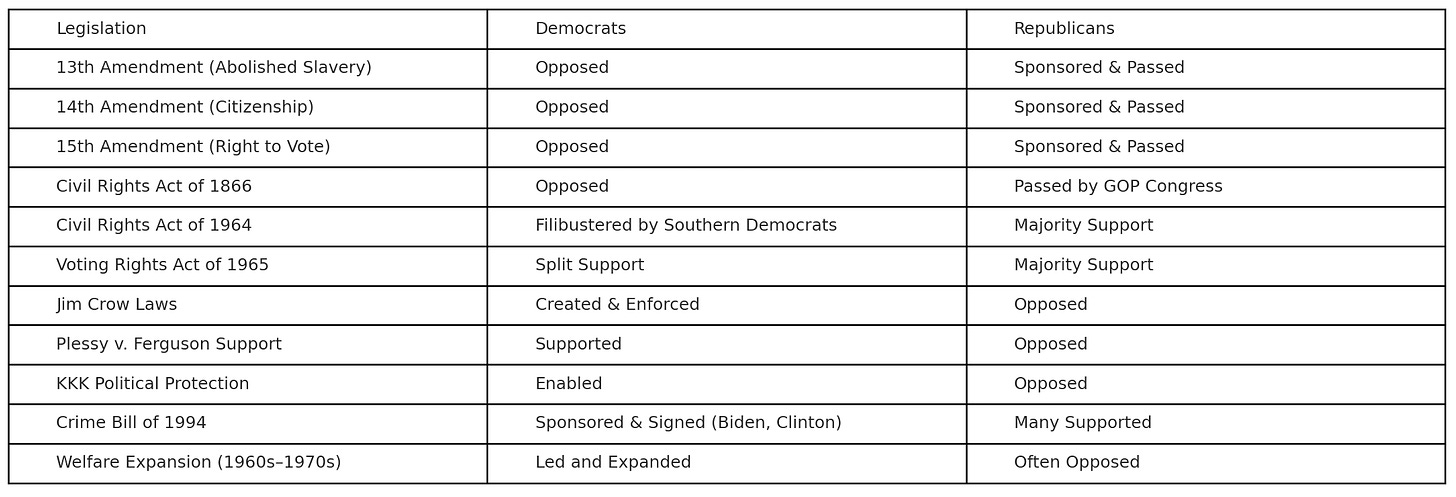
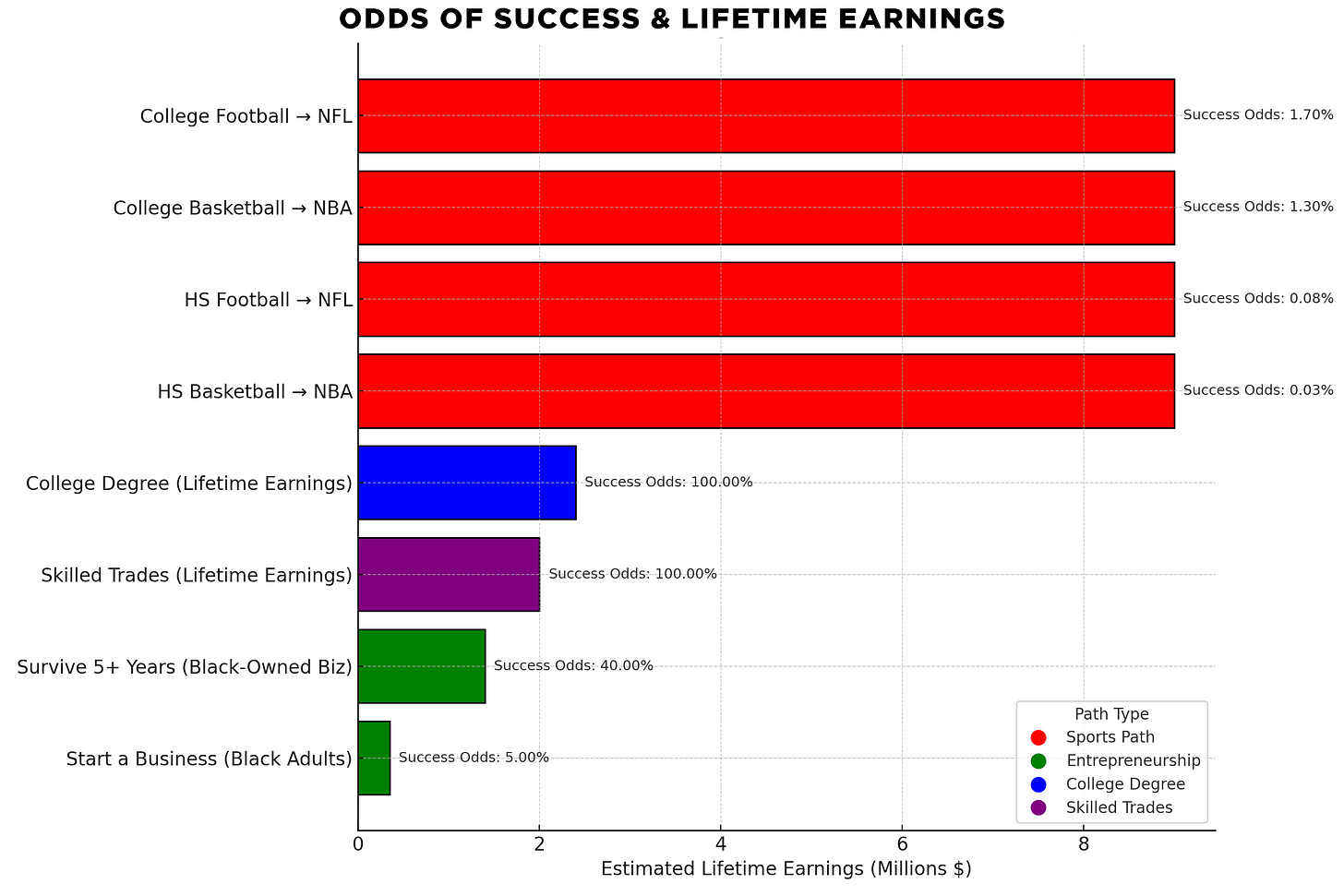
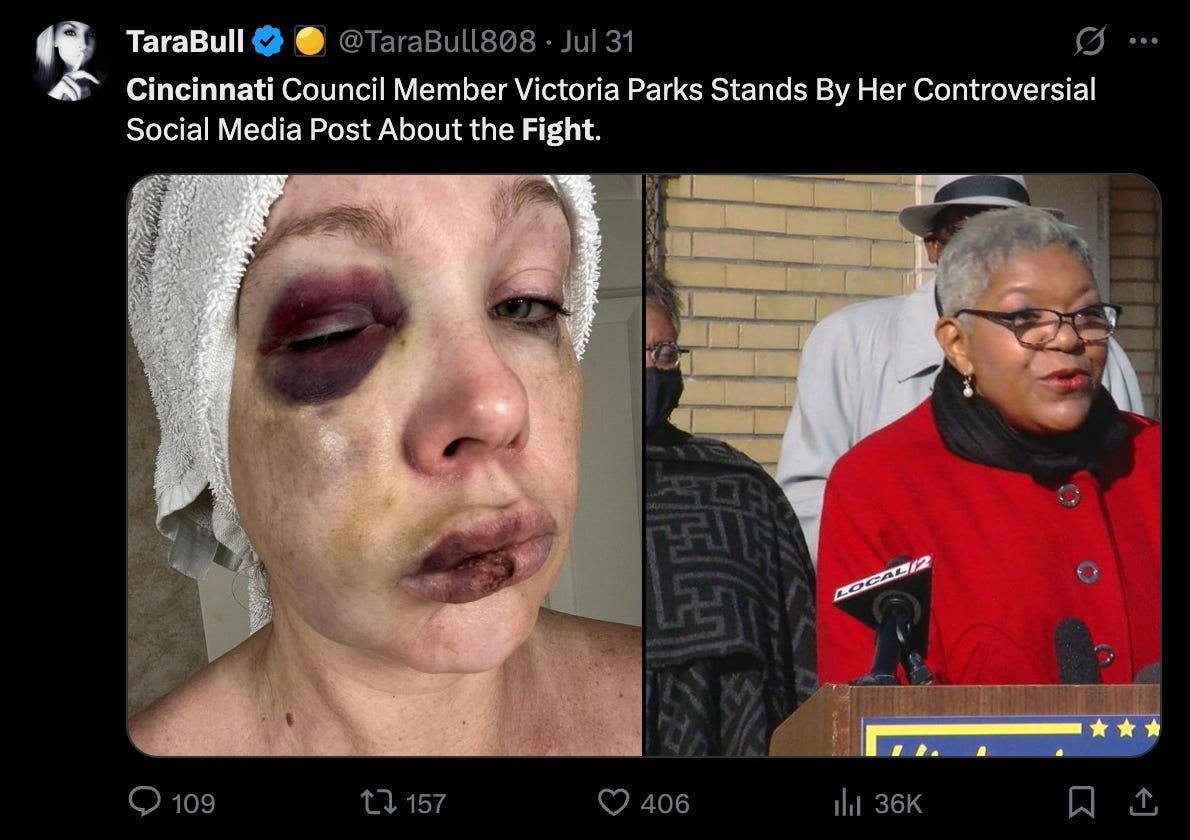
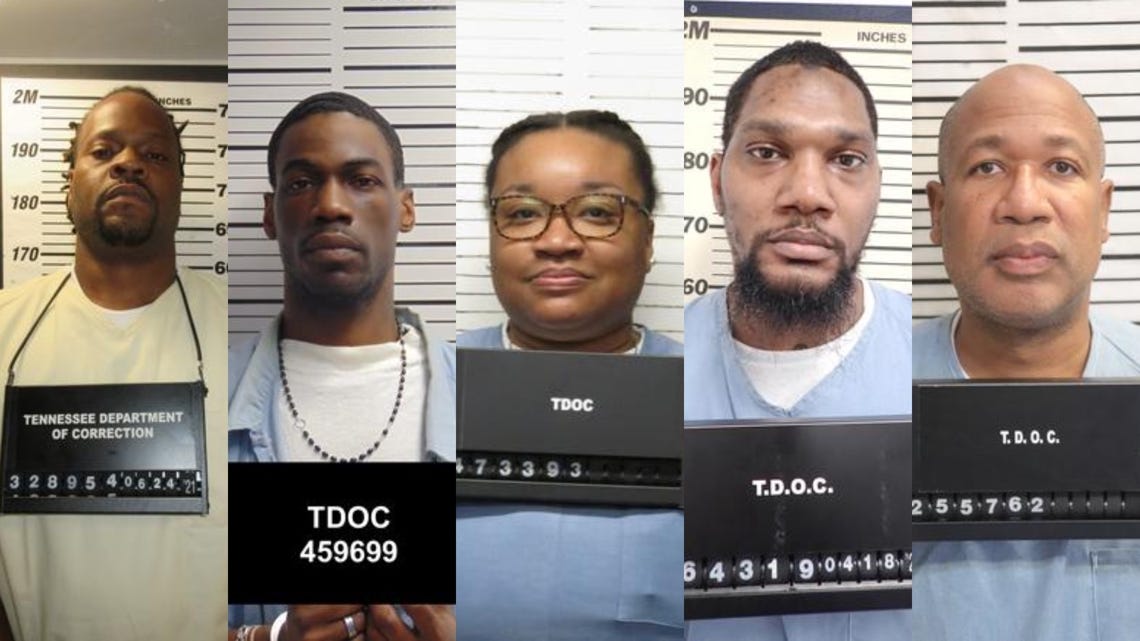
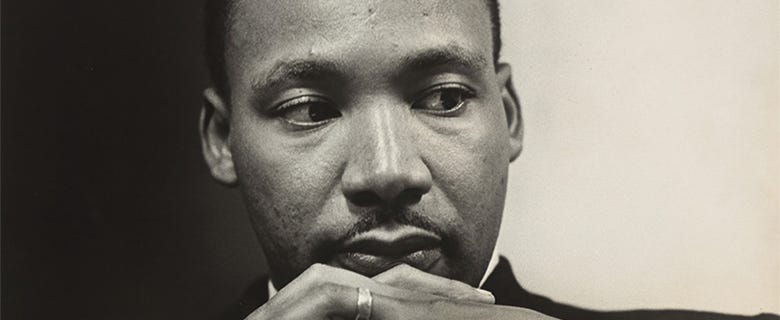
Different plantation, same outcome. This iteration is more like dairy cattle. Keep the m fat and
Keep them fat, mostly docile, and marginally productive. If a few cause problems, cull them.